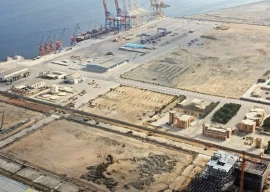
A landmark report published by the UN on Monday has warned that time has nearly run out to reverse the effects that climate change has had on our planet. It will soon be impossible to ensure a ‘liveable future’ as crises such as species extinction, ecosystem collapse and deadly heatwaves and mega-storms continue to intensify, creating wide-scale human suffering. The world might not end, but it might transform into a planet that will no longer be able to accommodate the human species. The report indicates that current disasters are just the start and there is far worse to come. It is indeed a damning indictment of failed global leadership.
According to climate statistics and data predictions, even if usage of fossil fuel comes to a complete halt, it might not help ameliorate the ecological crisis. This does not mean that we should stop trying to hold individuals and companies accountable. The world witnessed unpredictable results when industries were in lockdown during the first wave of the pandemic — there was a significant drop in air pollution, marine life was reviving and ecosystems were strengthening. The more stringent the lockdown, the greater the reduction in emissions. Hence, human activity, especially the oil industry, needs to be significantly reduced to create a positive chain reaction. The time of resorting to conferences and meeting is no more, as immediate action seems to be our only chance of stopping this ecological crisis from becoming a full-blown existential threat. We must collectively initiate immediate rapid actions and experiment with multiple long-term possibilities to secure our future.
Pakistan, a country that will witness the worst of the climate crisis, must be one of the front-runners in bringing global leaders towards taking immediate action. Subsequently, in order to reduce the destructive effects of climate change, we must adopt innovative practices such as China’s Sponge Cities and smart agriculture in order to protect ecosystems and reduce human risk.
Published in The Express Tribune, March 3rd, 2022.
Like Opinion & Editorial on Facebook, follow @ETOpEd on Twitter to receive all updates on all our daily pieces.














COMMENTS
Comments are moderated and generally will be posted if they are on-topic and not abusive.
For more information, please see our Comments FAQ